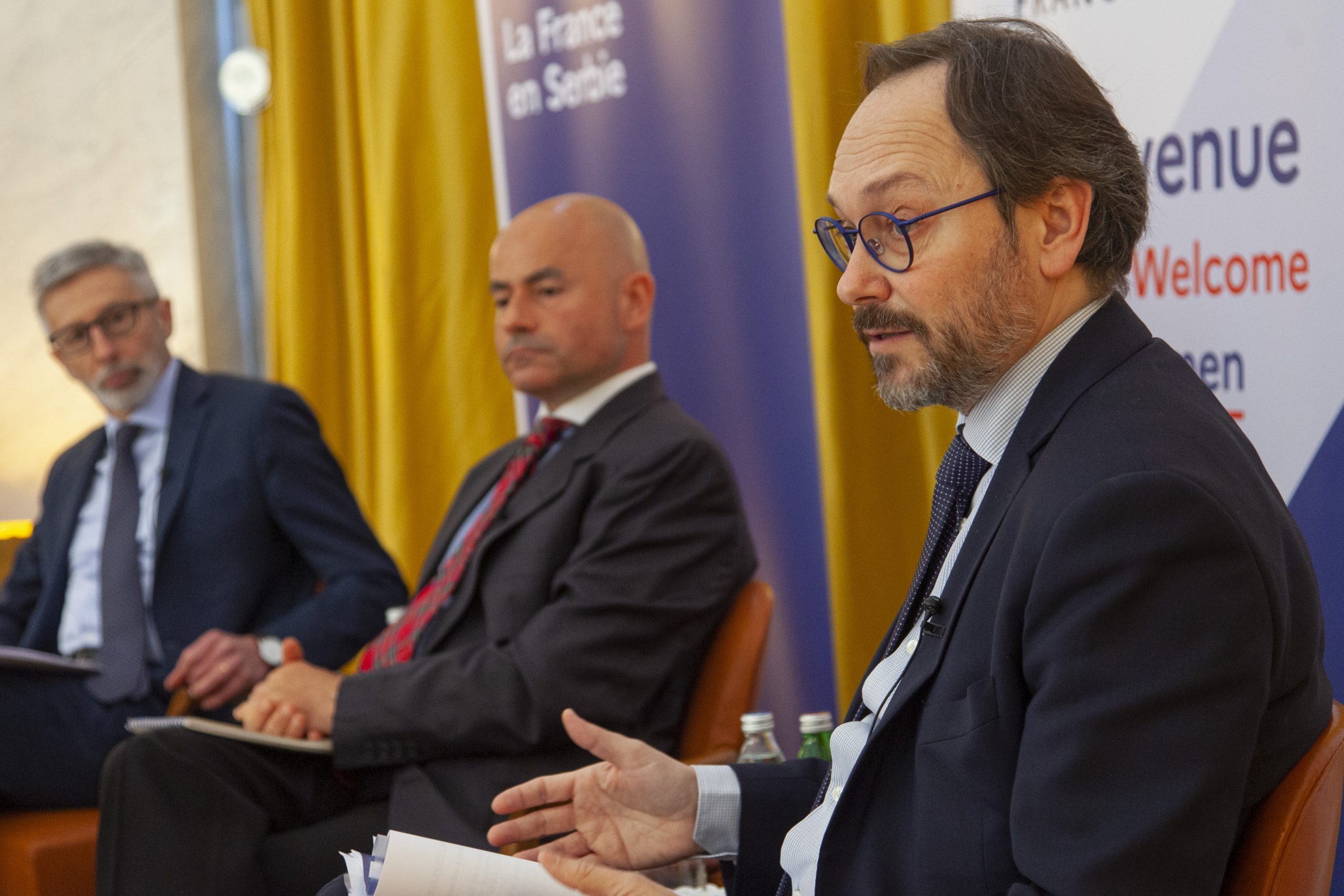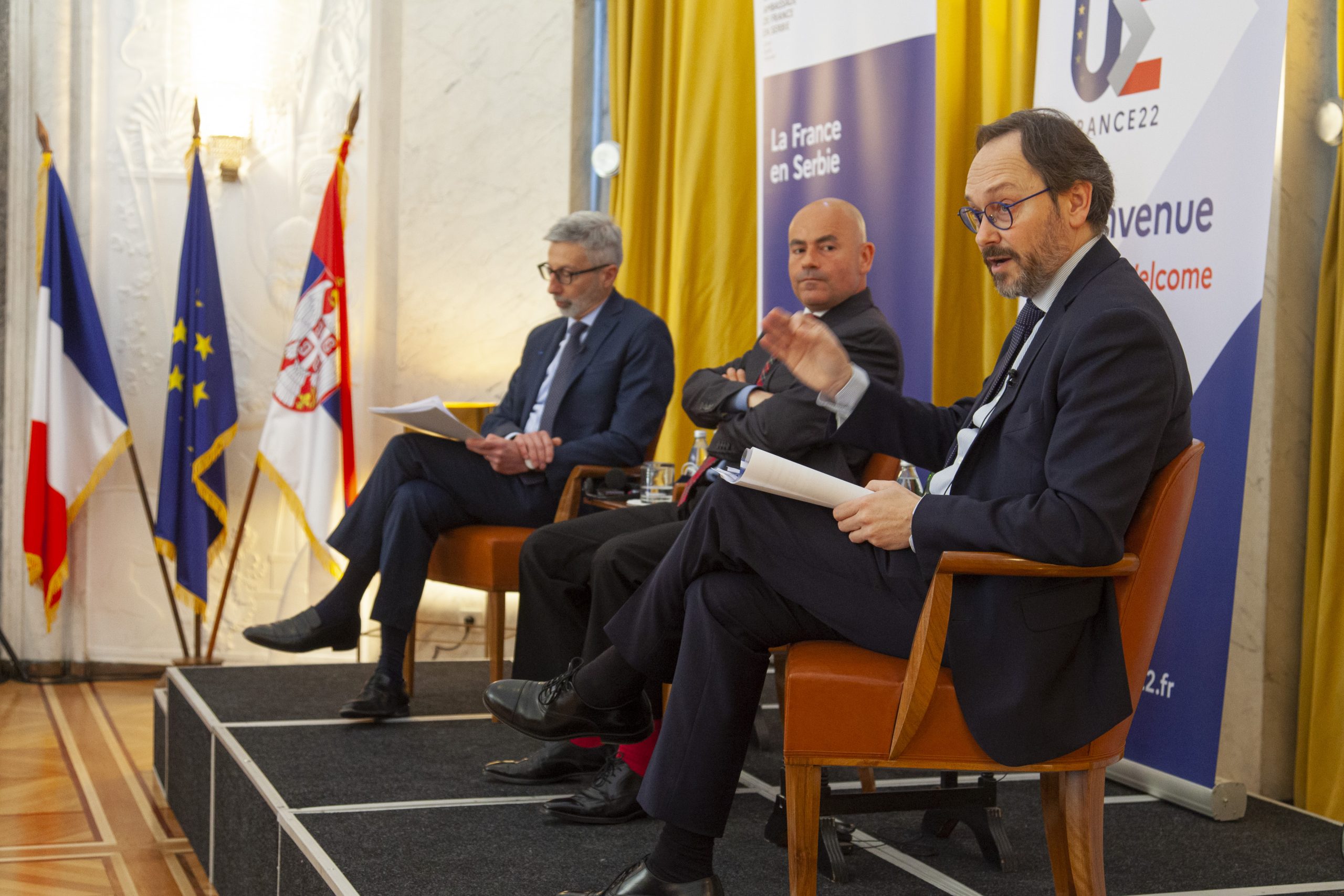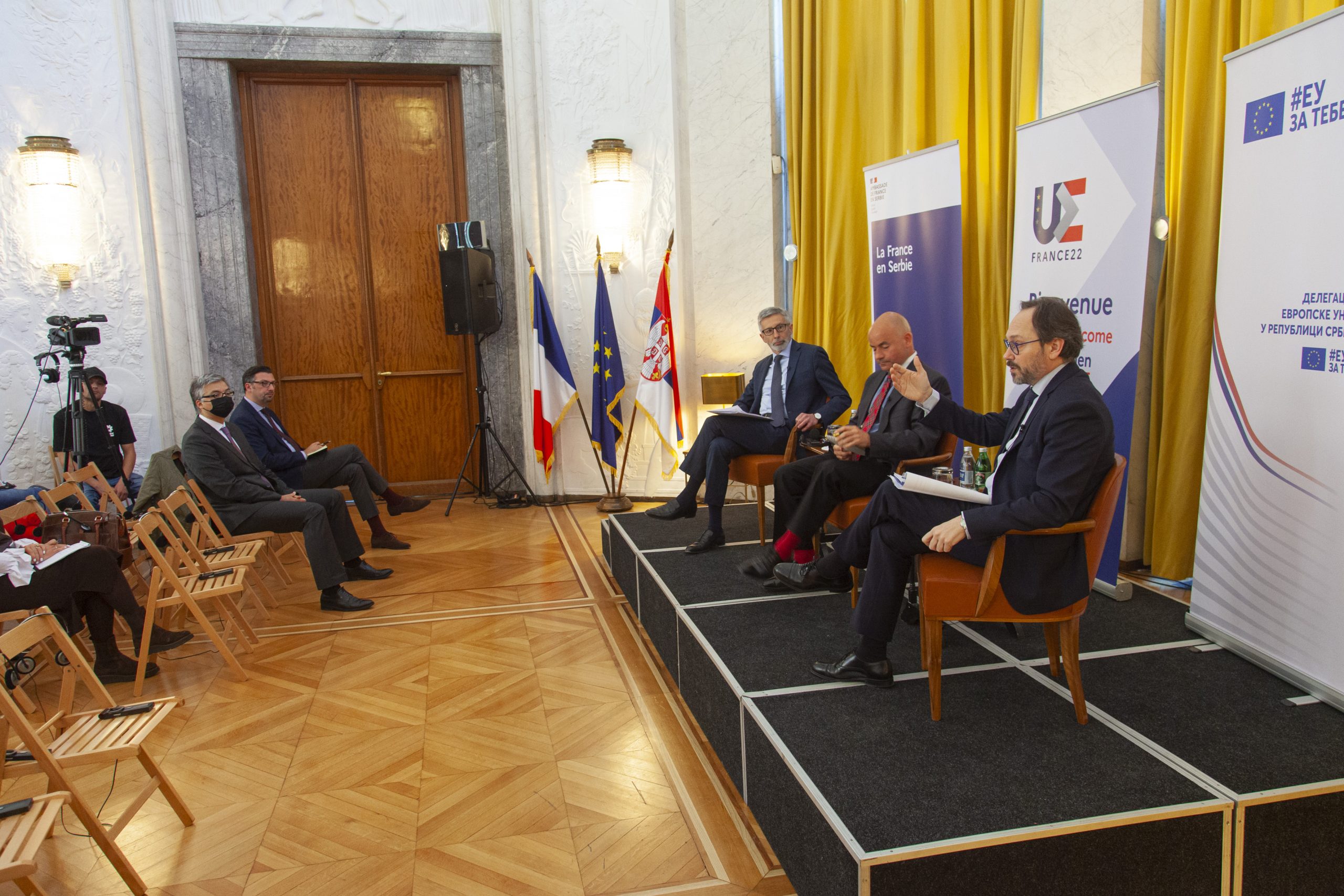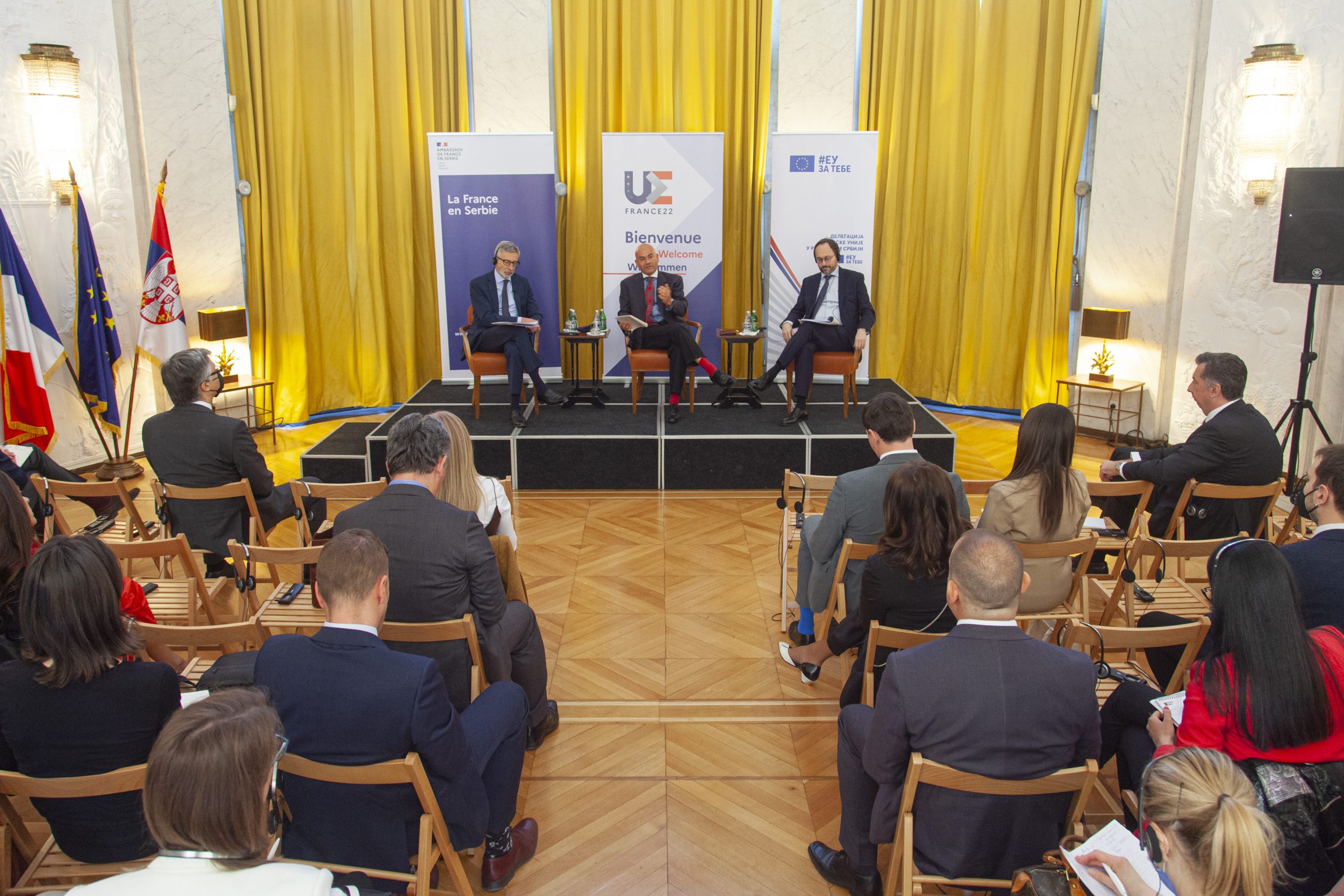EU candidate countries have an obligation to gradually align their foreign and security policies with European ones, and Serbia has made several significant steps towards that goal in the past period, said the EU Ambassador to Serbia, Emanuele Giaufret.
He stated at the presentation of the new strategic plan of the European Union “EU Strategic Compass for Security Response” that by voting in international bodies, such as the United Nations and UNESCO, Serbia has clearly decided against unjustified and unprovoked Russian aggression against Ukraine.
“Serbia has complied with some sanctions imposed by the European Union, which relate to the Maidan crisis in 2014, and has supported restrictive measures against Belarus, and we expect this trend to continue in the future. There are no fixed deadlines, but expectations that it will happen “, said Giaufret.

He added that the European Union has so far introduced five packages of sanctions against Russia, but that EU takes care that none of these measures affect the countries that are partners of the European Union, such as Serbia.
“We must protect our neighbours from sanctions, especially when it comes to gas,” said Giaufret, and reminded that Brussels had made a decision to exclude the Serbian Oil Industry from the package of sanctions imposed by the EU on Russia, in order to protect Serbia’s energy stability.
Giaufret also explained that the European Union wants sanctions to force Russia to end the war and return to dialogue. He also said that Brussels does not see an end to Russian aggression and that, after the war crimes in Bucha, the possibility of a new package of sanctions against Russia cannot be ruled out, which would refer to oil and energy.
“We want to see Serbia stand by us. We are working together with Serbian partners to stop the Russian aggression against Ukraine, and we are in a constant dialogue with the Serbian government on that issue,” said Giaufret.
The French Ambassador to Serbia, Pierre Cochard, also said that the European Union counts on the support of Serbia and harmonisation with the position of the European Union regarding the Russian aggression. He stated that France, as the country holding the presidency of the EU Council, understands that Serbia’s position is challenging.

“Serbia, which wants to become a member of the EU, also has certain obligations, and we expect that things will develop in that direction, but we are also aware of the difficulties. Personally, I am shocked by the amount of Russian propaganda in the Serbian media. We must all do our best to explain to the citizens what exactly is happening in Ukraine and help them understand that this is not a Western plot, but a violation of human rights and international law,” Cochard said.
He reminded that the European Union was united from the very beginning when it comes to condemning the Russian aggression against Ukraine, and said that it would remain so.
“Russian President Vladimir Putin, with his unilateral moves, destroyed all diplomatic efforts and forced us to react and look for different ways to save the world order. The unity of the Union was important, because Putin himself calculated that there would be a division among the member states,” Cochard said.
Pierre Cochard and Emanuel Giaufret agreed that the geopolitical moment and the return of the war to Europe showed how important it is for the European Union to develop its security capacities in order to be able to protect all member states and their economies.
“The Strategic Compass is a big step forward in security policy, which is based on 4 pillars – action, protection, investment and cooperation. The European Union wants to become a more effective and stronger player in crises, and that is why we will establish a permanent EU Rapid Deployment Capacity unit by 2025, which will have five thousand members ready to respond to various crises. We will also protect European citizens from cyber attacks, hybrid warfare and information manipulation. Climate change is also a great security challenge,” said Giaufret.

The ambassadors also emphasised that the strength of the European Union is to combine military and civilian strategies, which is why special attention will be paid to increasing the military budgets of the member states in the coming period.
“The European Union is one of the main economic powers, but our military expenditures are significantly lower than other world powers. There is a common will to change that now. Germany has already increased its military budget, and most of the funds will be invested in innovation and development of new equipment”, explained Ambassador Cochard and added that it is important that the European Union works with partners to defend the world order, to which, in his words, Russia has returned force.
Ambassadors also reminded that the unjustified Russian aggression on Ukraine led to a great humanitarian crisis and that the European Union opened its doors to more than four and a half million refugees, and that this is the biggest migrant crisis in Europe since the end of the Second World War.




